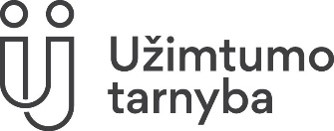About



The renewed Economics and Finance study programme focuses on developing competencies in three study fields: economics, finance and data analysis. The Economics and Finance study programme is crucial for strong data analysis skills, since companies today are generating massive amounts of data, the professional analysis of which ensures strong market positions and sustainable business development. At the same time, the growth of the Lithuanian Fintech sector necessitates an understanding of technology-driven financial products and services, as well as their regulatory environment and future growth trends. In addition to high-quality research knowledge, this study programme allows students to structure their study programme plan: in the third and fourth years of study, students are able to choose from a number of different subjects, taught in either Lithuanian or English. The quality of these studies is also determined by highly qualified lecturers, who are carrying out research in microeconomics, economic policy, environmental economics, application of statistics and econometrics, economics of social security, economic demography, corporate finance, public finance, financial technology, financial markets, and other fields.
All international applicants must meet the general admission requirements.
Important admission note for non-EU/EFTA applicants: The gap since completing your secondary education must not exceed five years.
For more information please write to the Faculty academic coordinator:
You will learn
- Applying modern quantitative analysis methods, you will be able to examine and evaluate a wide range of economic and financial phenomena, understand their patterns, causes and interrelation.
- You will gain an understanding of global problems such as climate change, hunger, poverty, regional income differentiation, health inequality, and etc.
- You will gain an understanding of commercial and central banking, the functioning of financial institutions and financial technologies.
- You will be able to propose economic policy measures based on economic and financial empirical evidence, as well as critical argumentation.
- You will be able to carry out economic and financial analyses of companies, organisations and different sectors.
- You will gain valuable skills necessary for the independent management of personal finances.
- You will be able to work in a team and develop leadership competencies in accordance with ethical and social principles of responsibility.
Study Overview
Each course combines theoretical knowledge with practice in the form of seminars, discussions, group projects, as well as case study analysis. The study of economics especially encourages teamwork, which aids students in developing responsibility and leadership competencies, which are highly valued in the labour market. Seminars based on open discussions help students develop public speaking, critical and logical thinking skills. Working on projects and case studies helps students critically analyse economic and financial phenomena. Statistical and data analysis skills are developed in modern computer laboratories, where students learn how to use statistical analysis and data visualization software, as well as how to analyse real-time data on financial markets, provided by the Bloomberg terminal. Almost every course is also taught by guest lecturers who are professionals in the fields of economics or finance. These guest lectures provide students with the opportunity for networking with potential internship companies and institutions.
The compulsory internship is a way to try out a career and find a dream career pathway. Each student is assigned an internship supervisor, who assists the student with evaluating possible internship opportunities that would allow them try out a sought-after career. FEBA works closely with both business and public institutions in order to help students find internship placements. In most cases, students are able to find paid internships that eventually develop into successful working relationships. The overall employability rate for the programme’s graduates exceeds 80%.
Lecturers
 Justina Klimavičiūtė
Justina Klimavičiūtė Giedrė Dzemydaitė
Giedrė Dzemydaitė Romas Lazutka
Romas Lazutka Algirdas Bartkus
Algirdas Bartkus Teodoras Medaiskis
Teodoras Medaiskis Tomas Baležentis
Tomas Baležentis Alfreda Šapkauskienė
Alfreda Šapkauskienė Arūnas Burinskas
Arūnas Burinskas Viktorija Cohen
Viktorija Cohen Estrida Ulvidienė
Estrida Ulvidienė Neringa Ramanauskė
Neringa Ramanauskė Gindrutė Kasnauskienė
Gindrutė Kasnauskienė Šarūnas Eirošius
Šarūnas Eirošius Vaiva Petrylė
Vaiva Petrylė Rasa Kanapickienė
Rasa Kanapickienė Sigitas Šiaudinis
Sigitas Šiaudinis Agnė Laužadytė-Tutlienė
Agnė Laužadytė-Tutlienė Greta Keliuolytė-Staniulėnienė
Greta Keliuolytė-Staniulėnienė



















































